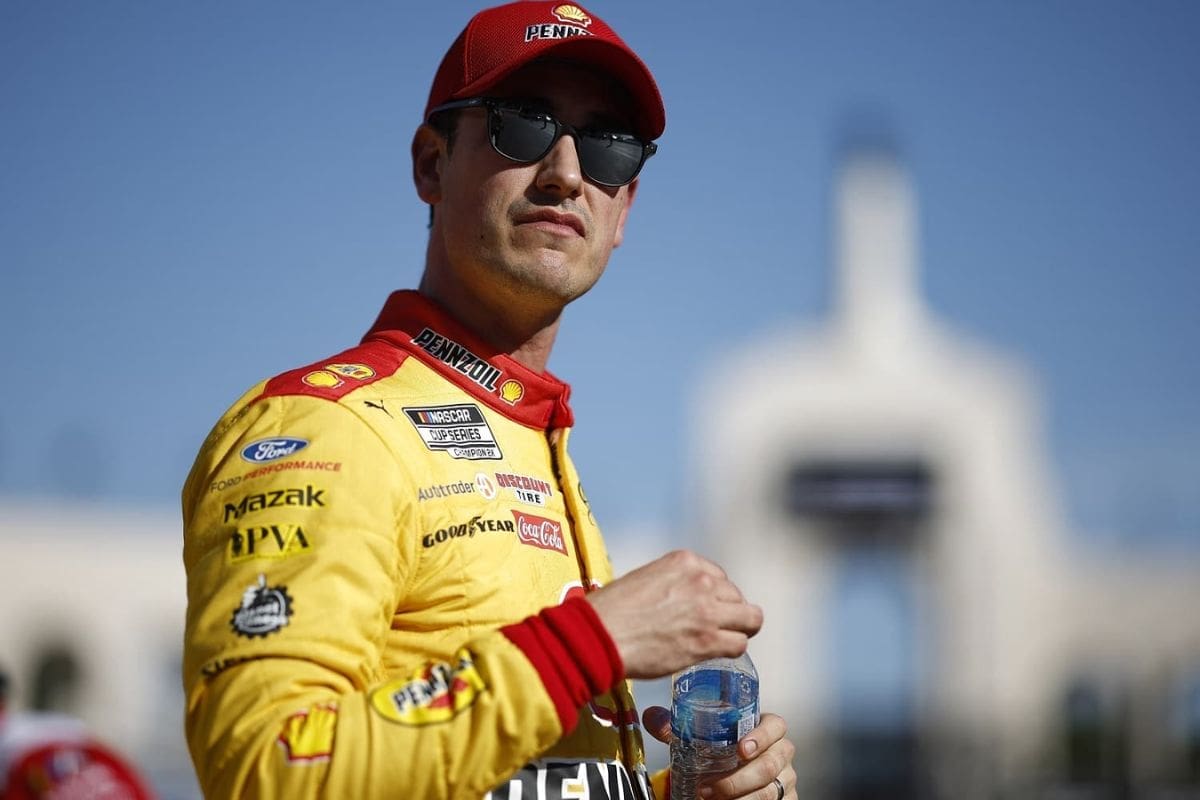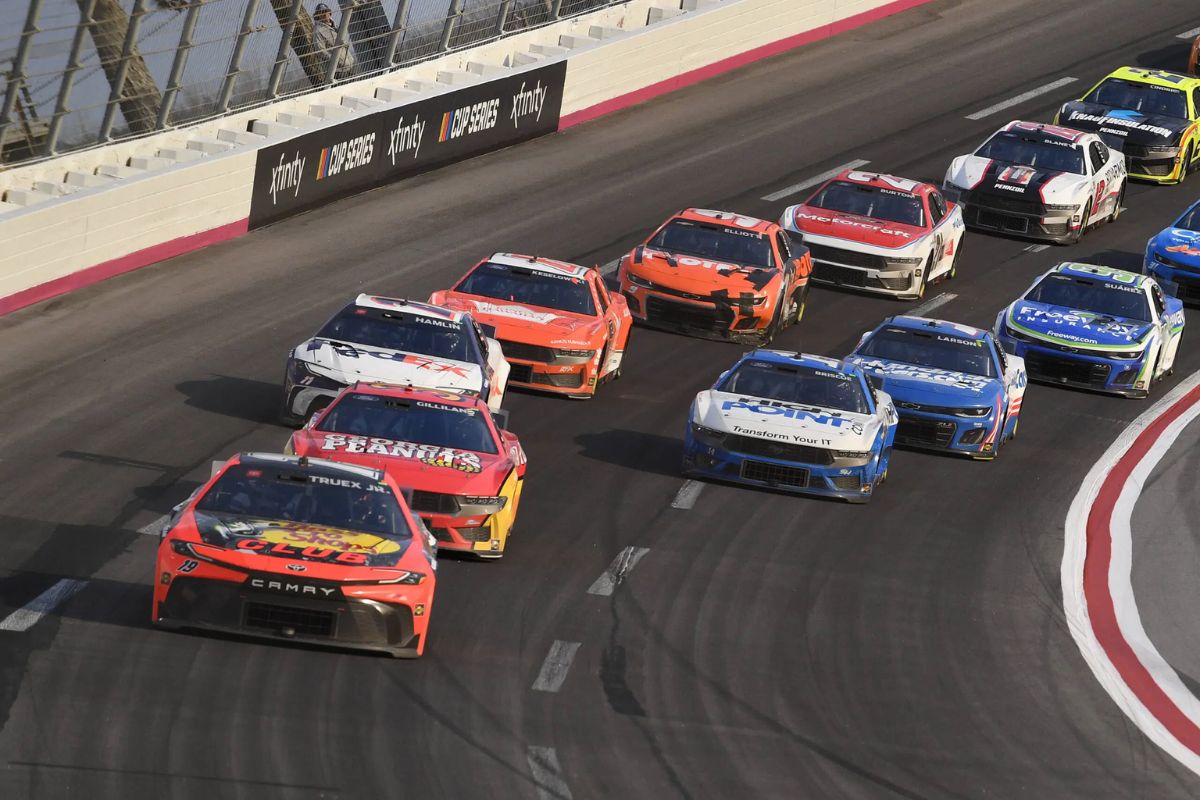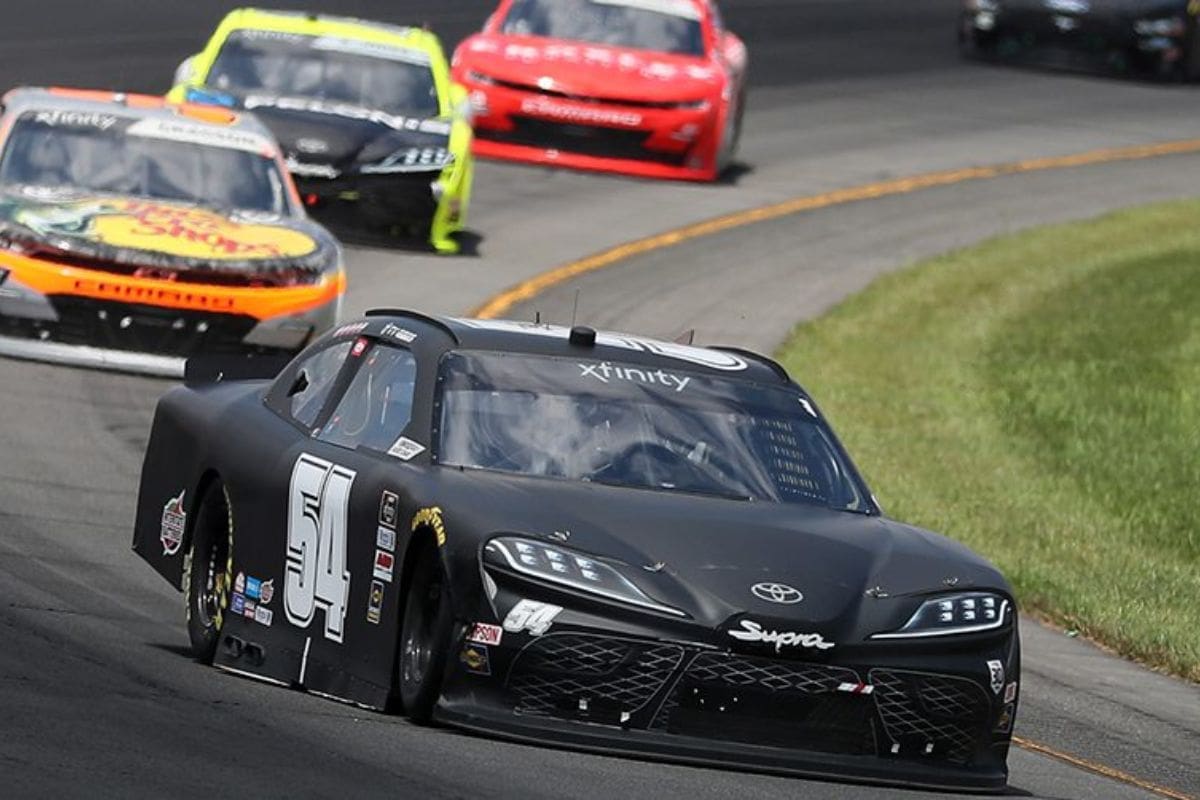Joey Logano On NASCAR’s Playoff Structure: Joey Logano‘s recent remarks regarding NASCAR’s playoff structure have ignited a notable conversation within the motorsport community. He asserts that the format, established in 2014, has effectively intensified the competitive landscape by fostering dramatic narratives that engage both fans and drivers similarly. His perspective contrasts sharply with other prominent figures in the sport, such as Denny Hamlin, who have voiced their dissatisfaction with the current system. This divergence in opinions prompts a deeper examination of the implications of NASCAR’s playoff format and its impact on the comprehensive integrity of competition. What key factors are influencing these contrasting views?
Key Highlights
- Joey Logano supports NASCAR’s playoff structure for enhancing competitive drama and viewer engagement.
- He believes such scenarios elevate the importance of each race in the championship chase.
- Logano recognizes the effectiveness of the playoff format since its introduction in 2014.
- Despite his endorsement, debates exist about the balance between excitement and fairness in the playoffs.
Joey Logano’s Perspective on the Playoff Structure
Joey Logano’s endorsement of NASCAR’s playoff structure highlights the tension between traditional point accumulation and the excitement of playoff eliminations, emphasizing its role in generating competitive drama within the sport. Logano, a two-time champion, articulates a perspective that values the current system for its ability to create such scenarios. Unlike traditional motorsport formats where the driver with the most points secures the championship, NASCAR’s playoff model introduces an element of uncertainty that mirrors other professional sports, enhancing viewer engagement.
“It has created a lot of drama in our sport, If it’s lasted this long, I don’t see anything about it that I would change at this point. I think it’s just like any other sport now. You can have an incredible regular season and still lose the first game of the playoffs and be out. Well, the same thing happens here.” – Logano
Joey Logano is the 2018 @NASCAR Cup Series CHAMPION!
What a season for the @CocaColaRacing team. #TeamJL pic.twitter.com/kxkKox9S0P
— NASCAR on NBC (@NASCARonNBC) November 18, 2018
Logano’s stance reflects a belief that the playoff format increases the stakes of each race, making every event critical in the championship chase. By necessitating exceptional performance during both the regular season and the playoffs, the system challenges drivers to consistently deliver under stress. This dual-layered competitive framework allows for dramatic narrative arcs, where a driver can excel throughout the season yet face elimination in the playoffs.
Moreover, Logano’s observation that the playoff structure has endured since its 2014 inception suggests a recognition of its effectiveness in maintaining interest and excitement within the NASCAR fanbase. He encapsulates the sentiment that success in racing is not solely determined by cumulative performance, but also by the ability to perform under the intense scrutiny of playoffs.
Denny Hamlin’s Discontent with the Playoff Structure
Denny Hamlin expresses substantial reservations about the system, citing concerns over the disproportionate influence of luck in determining the championship outcome.
Hamlin, a veteran driver for Joe Gibbs Racing, articulates his dissatisfaction by emphasizing that the playoff format culminates in a single race, where unpredictable variables can greatly alter the championship landscape.
Hamlin argues that this reliance on a singular event undermines the importance of consistency that is typically valued in competitive sports. “The reason I don’t love it coming down to one race is that racing is a sport where luck is involved,” he states. This sentiment reflects a broader anxiety regarding the unpredictability inherent in NASCAR, where external factors—such as the performance of other drivers or random incidents on the track—can derail a competitor’s title aspirations.
“when you’re competing in a championship in any other sport, it’s one on one your team versus the other team. The difference in NASCAR’s it’s one against three. But there’s 33 other guys out there that can completely screw up your day.” – Hamlin
As Hamlin approaches the twilight of his career, the urgency to secure a Cup Series title intensifies. His perspective highlights a fundamental tension within NASCAR’s playoff framework: the balancing act between fostering excitement and ensuring that skill and consistency are accurately rewarded.
Differences in Championship Structures Across Sports
Championship structures vary considerably across sports, with each system reflecting unique philosophies regarding competition, consistency, and the role of luck in determining outcomes.
In many global motorsports, the championship is awarded to the driver who accumulates the most points over a season. This system emphasizes consistent performance, but it can lead to predictable outcomes, particularly if one driver dominates the field. Consequently, fans may find the finale of the season less engaging.
In contrast, NASCAR employs a playoff format that introduces a notable degree of unpredictability. While drivers earn playoff points throughout the regular season, the championship is ultimately determined in a series of elimination rounds culminating in a final race. This structure allows for dramatic shifts in standings and keeps viewers engaged until the very end. The element of surprise is amplified, as a single race can alter the path of a driver’s championship aspirations, which contrasts sharply with traditional point accumulation systems.
Other sports exhibit varied approaches as well. For example, the National Football League (NFL) utilizes a single-elimination playoff format, while Major League Baseball (MLB) relies on a more extended series of games to determine its champion. Each structure has its merits and drawbacks, influencing not only the competitive dynamics but also the emotional investment of fans.
Overall Reaction to the NASCAR Playoff System
The NASCAR playoff system has sparked considerable debate among fans and analysts, with many questioning its effectiveness in truly identifying the season’s top driver. Introduced in 2014, this format aimed to improve excitement and competitiveness but has faced criticism for its potential to overshadow consistent performance over the season.
Critics argue that the current structure can disproportionately penalize drivers who experience even a few subpar races, effectively undermining their accomplishments throughout the series. This phenomenon raises concerns about the integrity of crowning a champion based on a limited playoff performance rather than cumulative excellence. Remarkably, the playoff format may favor drivers who excel in high-pressure situations rather than those who demonstrate consistent skill and reliability.
Moreover, the emphasis on drama, while engaging for audiences, has led to calls for a reevaluation of what constitutes a deserving champion. The potential for unexpected outcomes, while thrilling, can also detract from the narrative of skill and strategy that traditionally defines motorsport. As a result, many stakeholders, including drivers and teams, have expressed a desire for a system that balances excitement with fairness.
News in Brief: Joey Logano On NASCAR’s Playoff Structure
The NASCAR playoff structure has generated considerable debate among drivers, with Joey Logano advocating for its ability to create drama and excitement, while others, like Denny Hamlin, express dissatisfaction.
The contrasting perspectives highlight the complexities of championship formats across different sports.
Ultimately, the effectiveness of the playoff system in engaging fans and enhancing competitive stress remains a crucial topic in discussions surrounding the future of NASCAR racing.
ALSO READ: Joey Logano Reflects on Tense Start With Tony Stewart Before Finding Common Ground



